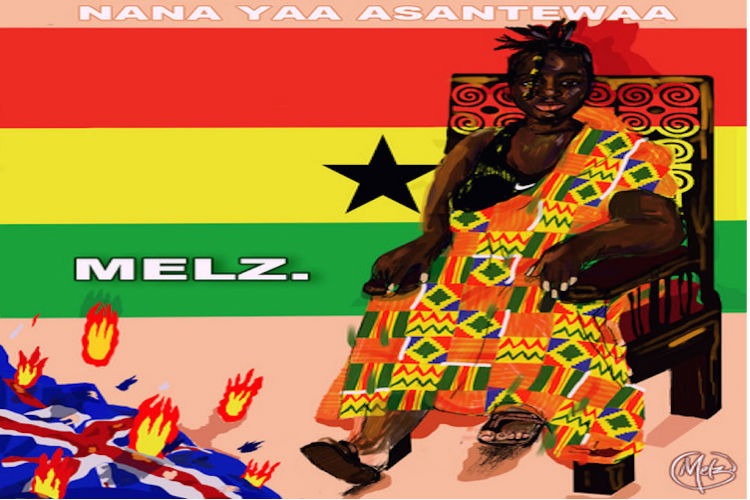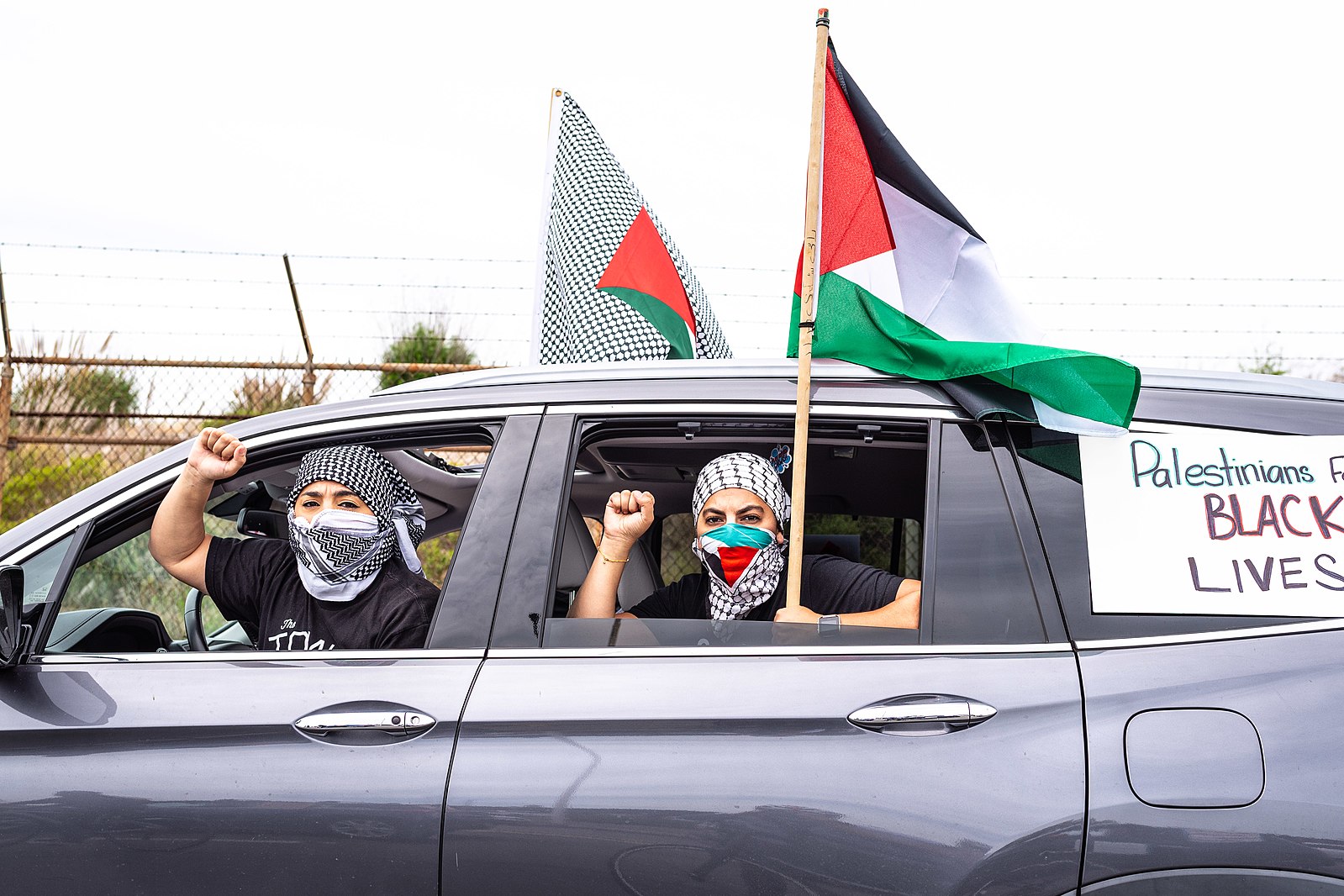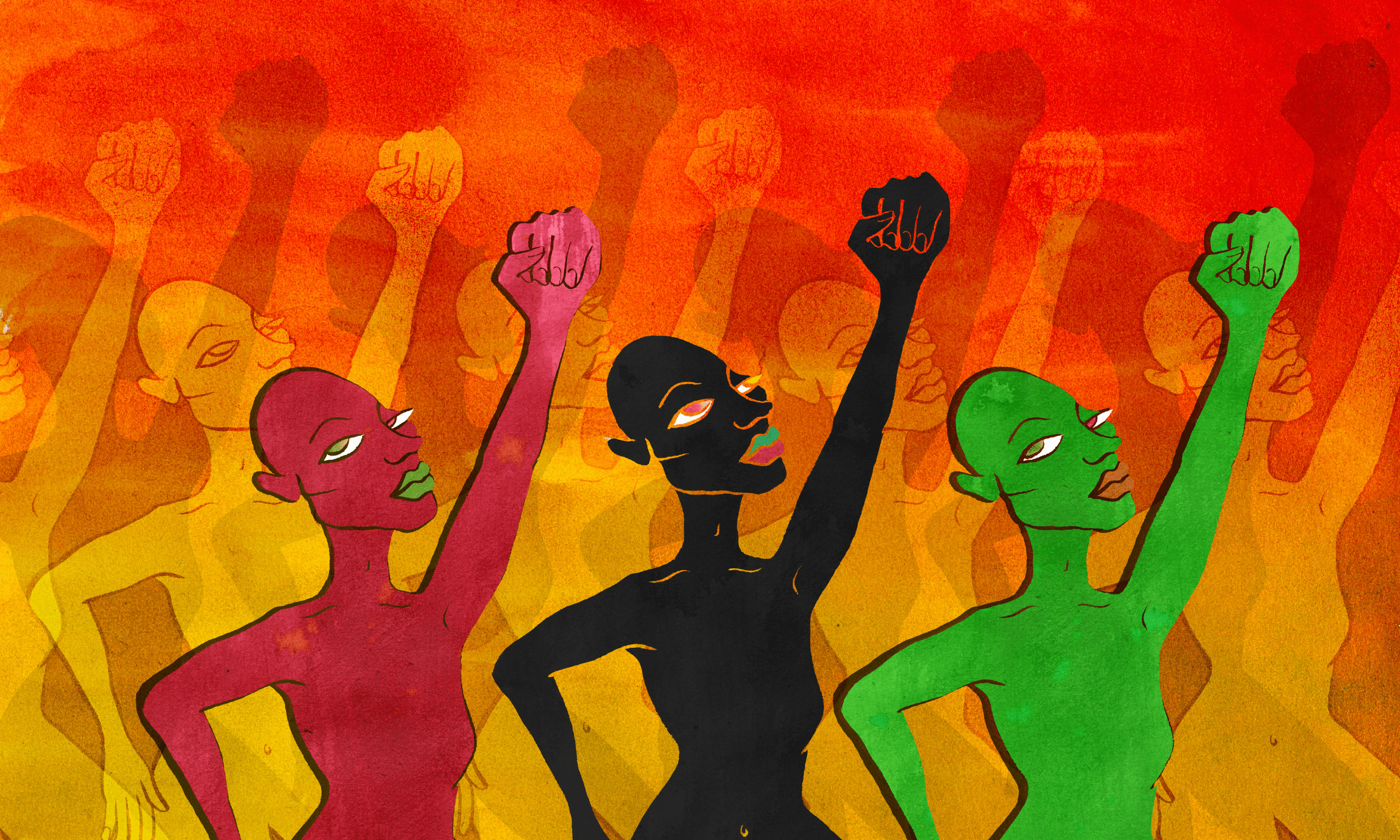
Last week, we celebrated Ghanaian Independence Day (March 6th). If you are active on social media, it would have been difficult to avoid every Ghanaian you know filling up the TL with their buff black faces,pictures and quotes from Kwame Nkrumah, and the beautiful Ghanaian flag designed by Aunty Theodosia Okoh. You may have seen that Michael Dapaah’s character Dr Ofori, released the banger BOA ME (Help Me) remix, Rabz Lansiquot’s beautiful, artistic video entitled Nyanspao (Wisdom Knot) and the release of my own song, entitled ‘Nana Yaa Asantewaa’, a story of an incredible woman who led the fight against British colonisers to preserve the artefact the unites the Ashanti Kingdom. This article explores Yaa Asantewaa’s fight and her legacy.
Independence Day is a moment of pride for Ghana, and, a moment of pride for sub-Saharan Africa and Pan-Africanists alike, as the first nation to gain their independence in sub-Saharan Africa and become a nation led by an avid pan-Africanist. Before I knew what Independence meant, before I had even walked on the scorching, sandy streets of Ghana and drank in that beautiful sun, I knew 6 March as my late grandmother’s birthday. Well, it may or may not have been her birthday, essentially, she needed a passport to come here (you know them ones). So my great grandfather – not entirely remembering when she was born – chose his favourite day of the year, 6 March, Independence Day. In my opinion, my grandmother represents the power of Ghanaian people in their struggle and fight that did not end at Independence, but continues today against this bloodclart nation. That is why this moment, always sitting alongside Mother’s Day and International Women’s Day, makes me think of the magnificent black women and gender non-conforming people (GNCP) in my life and those who have been instrumental in our struggle towards freedom throughout history.
I wrote Nana Yaa Asantewaa as an ode, as a homage and as a thank you to the black women and GNCP that inspire me. When I heard the story of Nana Yaa Asantewaa, it truly shook my foundations and understanding of history, Ghana and the role women have played.
Nana Yaa Asantewaa was the Queen Mother of Ejisu, a village in the Ashanti Kingdom, in the late 1800s. It was a time when the British were trying persistently to ransack resources held by the Ashanti Kingdom and annex it as a protectorate of the British Crown – essentially, this was the fight for colonisation. In 1902, the British achieved this but without the fight of Nana Yaa Asantewaa, they would have gained much more and at a date far-preceding this one.
The British, in the name of Queen Victoria, attempted to lay claim on the Golden Stool of the Ashanti people. This was the most sacred object in the whole kingdom. It was the symbol that brought the Ashanti people together and the story of it was what led to the inception of the Ashanti Kingdom itself. The story goes that Gye Nyame (The Supreme Being in Akan cosmology/ religion) sent down the Golden Stool to the founders of the Ashanti Confederacy, Okomfo Anokye and Osei Tutu. The divine stool is said to have landed in Osei Tutu’s lap, throning him the first Asantehene (King of the Ashanti People). So, when the British came to Kumasi, the capital of Ashanti, singing ‘God Save the Queen’ (KMT) to demand the Golden Stool; it was not given over without a fight.
It was Yaa Asantewaa who led this fight. The Asantehene (King of the Ashanti People) of the time, Prempeh I was already in exile so the men of the Ashanti governing body were far more willing to give over the throne to see the return of their King. Yaa Asantewaa was stunned at their lack of fight and conviction to their people and so, took matters into her own hands. 1900 saw the War of the Golden Stool where Yaa Asantewaa essentially held the British colonisers captive in a fort in Kumasi. This uprising was only circumvented by Yaa Asantewaa’s kind conviction in allowing the British women and children to be let free from captivity. And this allowed them to go to what is now modern-day Nigeria and alert the colonial forces there to come and fight to rescue the British trapped in the fort.
Nonetheless, this war preserved the Golden Stool for the Ashanti people. However, the British then exiled all the leaders of the Ashanti Kingdom to the Seychelles and this gave way for the leaders in 1902 to annex Ashanti to the British Empire. Her partial defeat, however, will never dampen her fight, her vigour, her vision. A fight she should have never had to fight, had the white man stayed in his lane, but regardless, she rose to the challenge whilst the men were not ready to defend the sacred Golden Stool from the dutty hands of Queen Victoria. In 2016, I performed ‘Nana Yaa Asantewaa’ at the Victoria and Albert Museum for gal-dem’s V&A takeover – I joked then that had it not been for Yaa Asantewaa, the Golden Stool would have probably been on display in that museum. The sour fact of the matter is it probably would have been.
I am as tired as the next person of the dangerous trope of the ‘strong black women’, which often leaves us unsupported at the times we need help the most, and engineers a lack of nuance in our representation that stops people from seeing us as vulnerable and in need. It is deeply necessary that this construct is broken down and challenged, as every black woman and GNCP I know has fallen victim to its manifestation. Still, the fact of the matter remains that to survive and exist in this society, we need to do far more than others just to get by and exist. So, I see the power of Nana Yaa Asantewaa in all my Ghanaian sisters; in all the black women and GNCP around me. We are continually fighting wars that we should not have to, and always rising to the challenge nonetheless – facing all that life hands us with unparalleled grace and power. These are the women and GNCP that raised me. These are the women and GNCP that continue to teach me; the women and GNCP that I know will always love me. This one is for you. You make everyone’s tomorrow just that bit easier.









